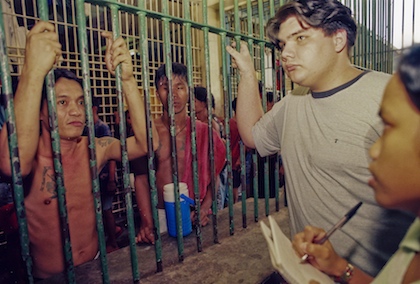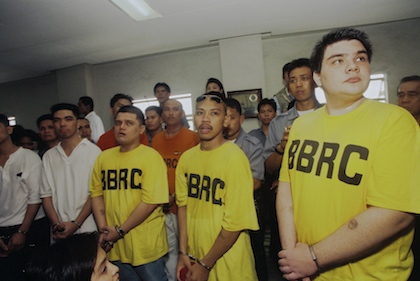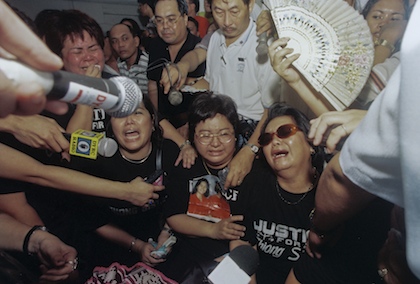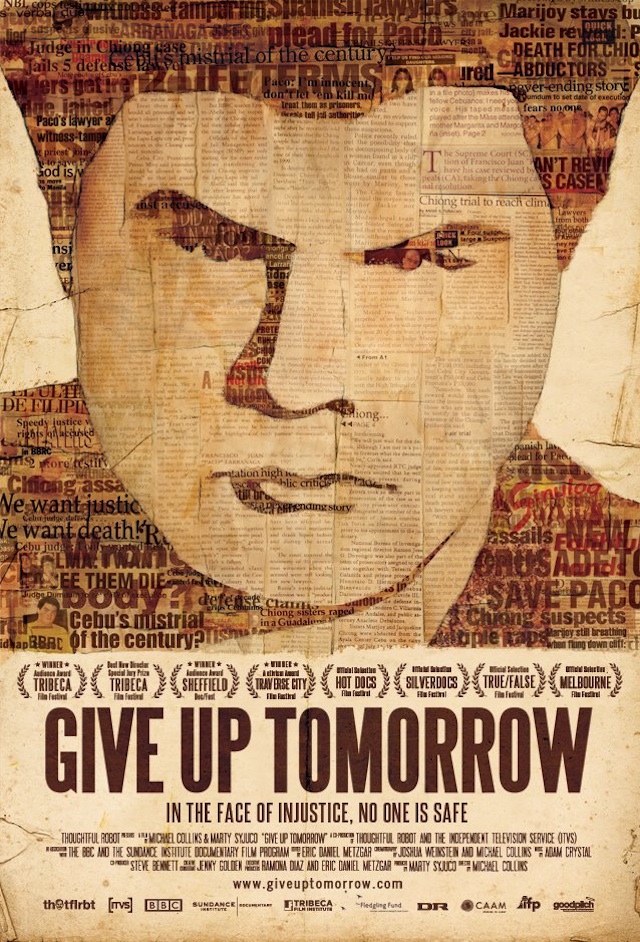SUMMARY
This is AI generated summarization, which may have errors. For context, always refer to the full article.

MANILA, Philippines – On a rainy night in July 1997, two young sisters — Jacqueline and Marijoy Chiong — vanished in Cebu, and a few days later Marijoy was found dead in a ravine in a town in the province. To this day, Jacqueline’s body has not been found.
Eight men were arrested and tried for the crimes of kidnapping and murder, among them Paco Larrañaga, scion of the prominent Osmeña clan who was then 19 years old.
A Cebu court convicted 7 of them in 1999 (the other suspect had turned state witness). Five years later, in 2004, the Supreme Court upheld their conviction, sentencing them to death by lethal injection. However, the Philippines abolished the death penalty in 2006.
Larrañaga served time in jail until October 2009, when, on the basis of an agreement between both governments, he was transferred to Spain, the native country of his father, a former pelotari.
But when the events occurred, Paco was in Quezon City, according to 42 witnesses whose testimonies the judge refused to admit during the trial.
His case caught the attention of two aspiring filmmakers from New York, one of whom is distantly related to Larrañaga.
Michael Collins and Filipino-born Marty Syjuco started making a documentary about Paco’s quest for justice, a mammoth task that took them 8 years to complete but for which they have won awards at film festivals all around the world, including Tribeca in 2011. Syjuco’s brother is married to Larrañaga’s sister.
Now they have finally brought Give Up Tomorrow to the Philippines, “where it all began.”
PH premiere
Give Up Tomorrow had its Philippine premiere on July 23 at the Cultural Center of the Philippines as part of the Cinemalaya independent film festival in Manila. It has received rave reviews from viewers.
“This is the moment we had been dreaming about ever since we picked up the camera in 2004. It was a story that was always meant to be brought back to the Philippines, to be shown here. It is where we feel it can have the most impact,” said Collins.
Collins told Rappler that he was “overwhelmed” to be able to show the movie in Manila and witness the “hugely positive response that came from the audience.”
“This is where the story happened. It is a very personal tragedy for so many people here, it’s not just a film,” he said.
Syjuco, the producer, recalled many challenging moments during the production, like when they managed to smuggle a camera into the New Bilibid Prisons in Muntinlupa to interview Larrañaga and film the prison, and the struggle to find funds for the two years it took them to edit over 400 hours of footage.
“We would plan to be here 4 weeks, and would end up staying 4 months. We both had to quit our jobs in New York (…) That’s why it took us 7 years to complete (the film) from start to finish.”

Screening in Cebu?
Collins and Syjuco would love to bring the movie to Cebu, where the events and the trial took place.
“It has been 15 years since this case happened. Enough time has passed for people to look at it from a different perspective, with fresh eyes,” said Collins.
The director hopes the film will one day show in Cebu, where even the Chiong family will be able to see that they are also portrayed as victims.
“There are so many sides to this story, and we wanted to represent all of them,” Collins responded when asked if he thought the parents of the girls would watch.
Syjuco added that for him the Manila screening was very special because many of the original witnesses they interviewed 8 years ago flew in from Cebu to attend the Cinemalaya premiere.

Paco in Spain
When the Philippines abolished the death penalty in 2006, Larrañaga’s death sentence was commuted to life and he was transferred to Spain in October 2009.
Now 34 years old, he will only serve the remainder of 40 years and is now benefiting from a special arrangement that allows him to only have to sleep in jail. But he is still subject to Philippine jurisdiction and has not been granted parole in Spain.
Syjuco told Rappler that despite being encarcerated, Larrañaga is in a “healthier environment” far away from the “walled city run by gangs,” referring to New Bilibid. “We were thinking, by the time we finish, Paco will be free and will be able to come with us to the festivals, but that never happened.”
Nevertheless, two months ago the prisoner was allowed to attend the screening of the film in San Sebastian (north of Spain) and for the first time watch his own story.
“He watched the film and told me, finally my voice is heard,” Syjuco said.

Searching for justice
Fifteen years later, Paco is still searching for justice, said the filmmakers, who hope their movie may help some people change their perception about the case, especially in Cebu.
“Back when the trial was happening, there was a bit of a frenzy surrounding it. This was such a gruesome crime, something like this had never happened in Cebu, so understandably the public wanted someone to pay. Very quickly the facts of the case kind of got pushed to the back burner, while emotions ran hot,” Collins explained.
Collins understands that many Filipinos may have “preconceived notions” about the case, but Syjuco is convinced that Give Up Tomorrow will change their minds and convince them of his innocence.
“Hopefully it is just a matter of time before Paco can be a free man,” Syjuco added. – Rappler.com
Add a comment
How does this make you feel?
There are no comments yet. Add your comment to start the conversation.